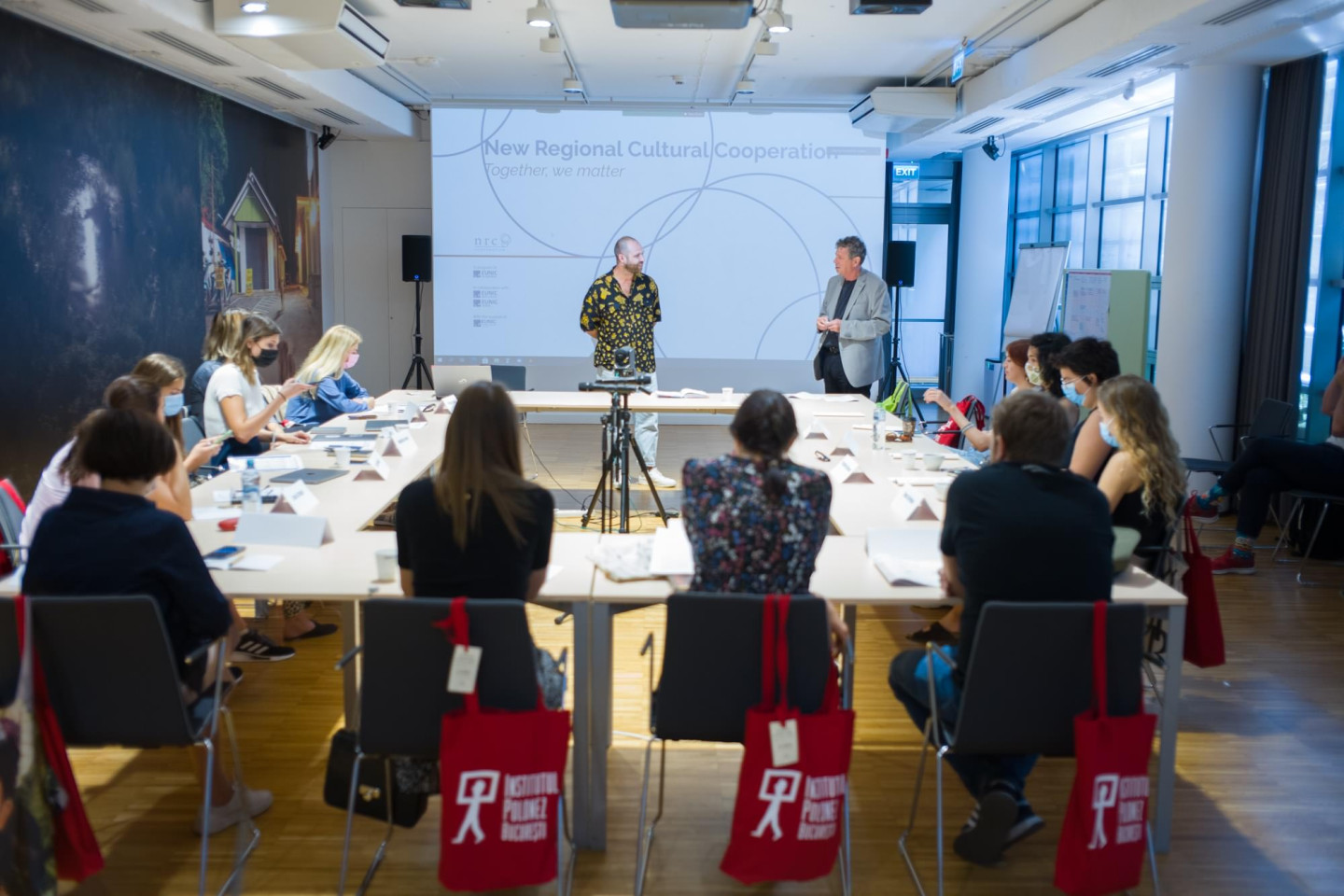New Regional Cultural Cooperation is a professional program aimed at improving capacity building and finding solutions for the cultural sector, by stimulating exchange and regional cooperation in Eastern Europe. The main goal of the project was to strengthen a weakened cultural sector and to increase the competences of the cultural operators in Romania, Serbia and Moldova.
The project was organized by the EUNIC Cluster in Romania, with the support of the EUNIC Clusters in Serbia and Moldova, which gave a strong regional dimension to the program. To support the capacity building process, the program offered micro-grants to provide new and innovative solutions for the cultural sector.
Outcomes
The NRCC 2021 between Romania, Moldova and Serbia under the motto "Together, we matter!" brought together 14 participants from the three countries involved from a total of 64 applicants and a total of 10 international facilitators of 8 different nationalities. The curriculum for the academy was written in a kick of workshop attended by cultural managers from the 3 countries. Together with a moderator, the project organisers mapped the needs of the 3 cultural sectors.
During an intensive six-day seminar in Bucharest, Romania from 14 to 19 September 2021, these trainers held a variety of lectures, sessions and workshops in order to support the cultural operators in the region. Moreover, the seminar was framed by three public showcasing events. The second part of the NRCC, a project incubator in Belgrade, Serbia, aimed to establish a long-term cultural exchange and transfer between the participants by stimulating joint projects.
In view of the global health crisis, which particularly affected Serbia in autumn 2021, this could not take place in 2021 as originally planned, but had to be postponed to June 2022.
These 4 days together in Belgrade led to the creation and submission of 7 different projects, each involving at least two different nationalities. Two of these projects were awarded grants.
The projects that have emerged in the wake of the idea incubator have been met with lively interest. Several partners are expressing interest in them, including the German Cultural Centre Sibiu. In addition, a possible cooperation with the Goethe-Institut Belgrade is being explored, as it intends to show one of the projects.
Challenges and Learnings
Overall, NRCC 2021 was a great success, with very satisfactory results. Mainly the Covid 19 pandemic, due to which parts of the project could only be realised at a later date than initially planned, turned out to be a challenge. Later, the project had to reschedule the incubator again due to the political situation in spring 2022 and the fact that participants from Moldova could not travel because the airspace over Moldova was closed. Another challenge was related to the sustainability of the event. In the future, an annual programme is planned, however, the implementation of this undertaking could be jeopardised by a lack of or insufficient funding.
Feedback
I have truly benefited from my participation in the New Regional Cultural Cooperation 2021 and am very grateful for the opportunities it has given me. Especially after the difficult time of the pandemic, which hit me and my colleagues from the cultural sector rather hard, I was very happy to finally be able to work and socialise again face to face with cultural stakeholders from different countries and backgrounds in the late summer of 2021. I found it very useful to reflect on the experiences with some distance and to develop joint, cross-border projects based on them. I would recommend the NRCC anytime, great for networking, contacts and future projects!
Clara Abdullah, Freelancer, Chișinău, Moldova – NRCC participant from Moldova

